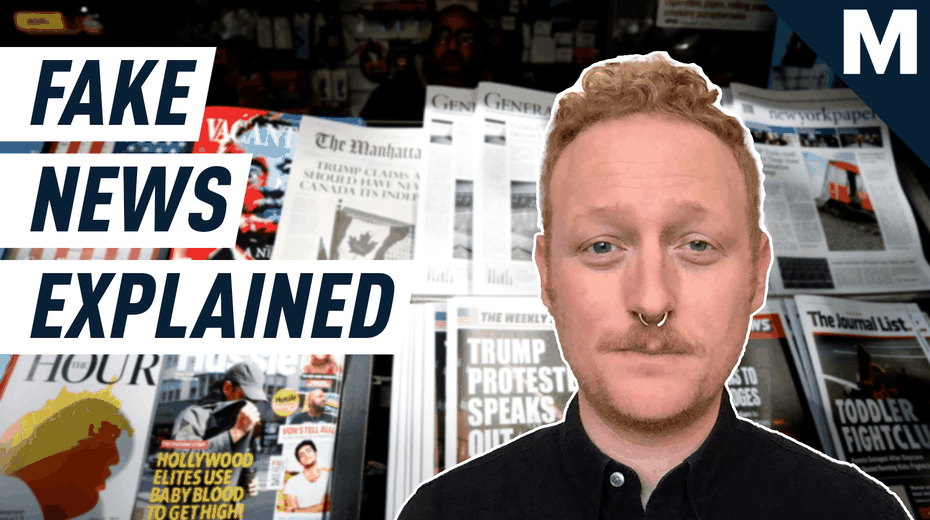Im his inaugural address, President Joe Biden promised to be honest with the American people.
“There is truth and there are lies, lies told for power and for profit,” he said, later adding, “I give you my word, I will always level with you.”
After four years of lies big and small, restoring trust is critical to helping America recover from the destabilizing onslaught of “alternative facts,” conspiracy theories, and falsehoods.
The “big lie,” as Yale historian Timothy Snyder recently described it in an essay for The New York Times, is Donald Trump’s insistence that he won the 2020 election when, in fact, his lawyers lost dozens of cases seeking to overturn the results and could never provide credible proof of widespread voter fraud. Still, 70 percent of Republicans said they do not believe President Biden was legitimately elected, according to a recent Washington Post-ABC News poll.
Another recent poll conducted by the firm Civiqs found that as many as five percent of Americans believe in QAnon, a set of pro-Trump, right-wing conspiracy theories that proliferated online.
The insurrection at the U.S. Capitol in early January brought into sharp relief — if it wasn’t obvious yet — that millions of Americans don’t just occupy a different digital town square, but an entirely distinct reality in which lies are presented as truth.
If you didn’t believe the “big lie” or QAnon, it may be tempting to assume you’re immune to the misinformation that we encounter every day online. You might think you’re smarter or savvier, but by their very nature digital town squares like Facebook and Twitter are built to bend and distort our reality. Algorithms cater to delivering the information and engagement we crave while reinforcing our penchant for lingering on negative emotions. Misinformation campaigns target weaknesses in our divided politics and ruptured social bonds. Politicians and so-called influencers find success online in turning us against each other. Chaos is often the point because it renders us unable to judge what is true — and what is not.
It’s tempting to assume that we’ve individually constructed an orderly online reality that meaningfully reflects what’s happening in the world, but we must actively guard against the distrust and delusions that rot our discourse.
The future of American democracy hinges partly on whether the vast majority of people remain tethered to a collective reality based in shared facts. We may disagree about how to respond to or interpret such certainties, but the key to a functioning democracy is that we can accept they exist. When President Biden says the country needs a 100-day mask mandate to prevent more COVID-19 deaths, we need Americans to believe that the pandemic is real instead of a hoax.
It’s easy to lose our way online. Algorithms surface engaging content, which we’re typically drawn to because it confirms our beliefs or ignites our anger. We may argue with one stranger online, about politics or vaccines or racism, and superimpose that experience onto a whole group of people, whether they’re conservatives or progressives. We can then weaponize those negative experiences by using them to justify caricatures of people with whom we disagree.
“It’s easy to lose our way online.”
At the same time, misinformation campaigns are set like traps across the internet, further undermining our collective ability to distinguish fact from fiction and truth from lies. The Media Manipulation Casebook, a resource created by experts affiliated with Harvard Kennedy School’s Shorenstein Center on Media, Politics, and Public Policy, has documented several examples of these campaigns and their tactics.
Terms like “evidence collage” and “cheap fake” might be unfamiliar, but the techniques are recognizable. An evidence collage pairs screenshots and text and, with basic image editing, is designed to look like an infographic or official document in order to “influence both the general public and journalists and preempt authoritative reporting.” The collages can contain verified and unverified information as well as link to sites with even more disinformation.
Friends and family may pass on a “cheap fake” YouTube video that features slowed down footage of House Speaker Nancy Pelosi in order to make her appear drunk. Facebook responded to one clip, which circulated last August, not by removing it but by labeling it “partly false.” That’s how misinformation uses whatever trust we have left in each other to undermine our shared reality, and how social media companies drive the nail even deeper.
WATCH: How to recognize and avoid fake news

The decline of local journalism has made it nearly impossible for some communities to even learn the truth about what’s happening around them. Without the imperfect authority of local journalism, bad actors can rush to fill the vacuum. In Stockton, California, for example, one Facebook page targeting the town’s mayor, Michael Tubbs, became a popular platform that sometimes wielded misinformation to achieve its goals. When Tubbs lost his reelection campaign in November, he cited a “four-year misinformation campaign” that played out on social media.
While the digital town square has its joys and rewards, we must increasingly participate with caution. Media literacy, which can help us understand how content is generated and disseminated, is vital. Consulting authoritative sources for information and insight is important.
Good habits also make a difference. Ask hard questions of personal beliefs. Read a story, not just the headline. Don’t pass on misinformation. Disagree with friends and family in person versus over social media. Push back on false claims without insulting strangers. As we search for and discuss commonly shared truths, we should try to preserve our relationships whenever possible. While we can’t control what others believe, our opponents don’t necessarily need to become our enemies.
President Biden may have promised to deliver the truth, but Americans play an essential part in that bargain. The more people whose online experiences cause them to slip beyond a shared reality grounded in fact, the easier it’ll be to tear our union to pieces.
